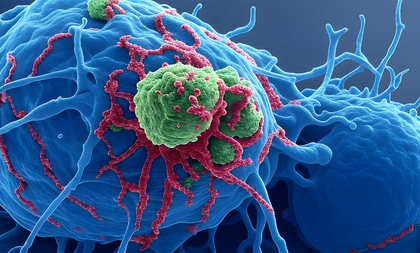NexCAR19 cancer drug made gene therapies affordable, accessible with patient safety: Govt
By IANS | Updated: November 5, 2025 17:50 IST2025-11-05T17:49:49+5:302025-11-05T17:50:20+5:30
New Delhi, Nov 5 NexCAR19, the world’s first humanised CAR-T therapy developed in India, has made gene therapies ...

NexCAR19 cancer drug made gene therapies affordable, accessible with patient safety: Govt
New Delhi, Nov 5 NexCAR19, the world’s first humanised CAR-T therapy developed in India, has made gene therapies affordable and accessible while also maintaining scientific quality and patient safety, said the Ministry of Science and Technology on Wednesday.
NexCAR19 is a prescription drug for treating specific relapsed or refractory B-cell Non-Hodgkin’s Lymphomas and B-cell Acute Lymphoblastic Leukaemia when frontline therapy or other standard treatments have been unsuccessful. It was developed using a lentiviral vector.
“NexCAR19, India’s first living drug, has made gene therapies both affordable and accessible without compromising scientific rigour or patient safety,” the Ministry said.
NexCAR19, developed by ImmunoACT -- a gene therapy company incubated at IIT Bombay -- and supported by the Department of Biotechnology (DBT) and Biotechnology Industry Research Assistance Council (BIRAC), was among the three path-breaking innovations gifted to the nation by Prime Minister Narendra Modi at the ongoing ESTIC2025 conclave in the national capital.
The other two include QSIP: India’s own quantum security chip; and 25-qubit QPU: India’s first quantum computing chip, powering the future of computation.
CAR-T, or the Chimeric Antigen Receptor T-cell, has emerged as a breakthrough in cancer treatment. Clinical trials conducted globally have shown promising results in end-stage patients, especially in patients suffering from Acute Lymphocytic Leukaemia.
Recently, DBT via the Biomanufacturing initiative under the BioE3 Policy gave funding to ImmunoAct for setting up a 200L GMP lentiviral vector and plasmid platforms to scale up the production and also to make this new therapeutic modality more affordable.
“This platform will likely incorporate advanced bioreactor technologies to facilitate high-density cell growth and continuous production and enable higher yields and better performance of lentiviral vectors. The GMP-grade gene delivery vector can help at least 1000 patients per year for cell and gene therapy,” the Ministry said.
Amid rising cancer cases in the country, the DBT is also promoting early and late translational research to develop novel and indigenous CAR-T-based therapeutics to combat the deadly disease.
DBT is supporting interdisciplinary teams to venture into immunotherapeutic solutions for a broader spectrum of cancers, including both liquid and solid cancers, and also ways to overcome the associated toxicities, the Ministry added.
This includes cancers like Multiple Myeloma (MM), Acute Lymphocytic Leukemia, refractory or relapsed B-cell Acute Lymphoblastic Leukemia, glioblastoma, etc.
Disclaimer: This post has been auto-published from an agency feed without any modifications to the text and has not been reviewed by an editor
Open in app